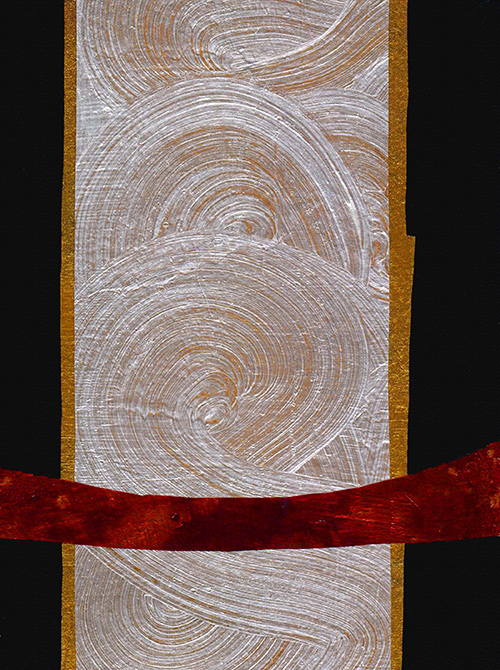 Image: Holy Thursday © Jan Richardson
Image: Holy Thursday © Jan Richardson
Reading from the Gospels, Holy Thursday: John 13.1-17, 31b-35
Years ago I spent a summer doing an internship that involved regular, intensive meetings with the other interns and a supervisor. We were expected to be emotionally and spiritually vulnerable with one another as part of the process. As someone who much prefers to have control over where and how I share about myself, I continually struggled with how to do this with a group of people whom I hadn’t chosen myself. The internship became an important part of my formation process as a minister, and I gained a deep appreciation for the folks in the group, but for an introvert, the expected intimacy was a huge and frequently uncomfortable stretch.
Maybe it was that experience, or perhaps it’s just my natural introverted tendencies, but I tend to avoid situations where I’m encouraged or expected to be intimate beyond my usual boundaries. And here we are at the edge of Holy Thursday, a day when we’re confronted with a story that challenges us as a church to do that very thing.
The Gospel lection for Holy Thursday offers John’s telling of the Last Supper. Alone among the Gospel writers, John tells us that in the middle of the meal—likely a Passover meal in which they would have retold the story of God’s deliverance of the Israelites from their captivity—Jesus removes his robe, pours water into a basin, and begins to wash the disciples’ feet. Peter challenges him, and in responding to Peter’s challenge, Jesus makes very clear that he expects his disciples to do the same thing for one another. In word and action, Jesus provides a quick and deep lesson about power in Christian community: how we are to share power, how this challenges us beyond our accustomed roles, and how it is grounded in love. “I give you a new commandment,” Jesus says as he responds to Peter, “that you love one another. Just as I have loved you, you also should love one another. By this everyone will know that you are my disciples, if you have love for one another” (John 13.34, 35).
I find it intriguing that in terms of ritual practices, Jesus laid down hardly any mandates. One can argue, in fact, that footwashing is the only ritual act that he specifically exhorted his followers to practice. Interesting, then, that most Christian communities practice it so seldom. I can count on two hands (or feet) the number of times I’ve participated in a footwashing. Given my aforementioned aversion to situations where I’m expected to be intimate with folks whom I might not otherwise choose to be intimate with, there’s a part of me that doesn’t terribly mind this. Given the dearth of footwashing opportunities, I know I’m not alone in this.
The last footwashing I participated in was during a retreat that I shared with clergywomen who serve in a denomination where the practice of footwashing is part of their custom. Drawing from this same passage in John, their ritual takes place in the context of a love feast. It was an exquisite experience to participate with these amazing women who had crafted the ritual with such intention and care, and who understand the power of a practice that calls us not only to serve but to be served. (For those whose lives are shaped around service, the latter may be the most challenging part of the ritual).
But I find myself wondering—what would such a ritual be like in the church community of which I am a part? As Jesus demonstrated, such a ritual shakes up the usual relationships by which a community understands and defines itself. Perhaps this, as much as the mere fact of such physical closeness in a culture that doesn’t particularly foster this, is the source of our discomfort.
Which, of course, is what Jesus was trying to get his disciples—and us—to see. In these final days of Lent, Jesus’ act calls us to remember that this season is not only about examining our personal habits, to see if there are any that are insulating us from God; it’s a season that calls us to examine our corporate habits as well, to see how our practices as a community open us to or distract us from the presence of God.
I love that Jesus washes the disciples’ feet in the context of a meal. As someone who considers the table a holy place, and who purely loves to eat, I dig that. An old boyfriend told me one time that he’d never met a girl who liked her groceries so much. (Though at 40, I’m starting to feel my lucky metabolism shift…) In its own way, however, sharing a table calls us to a radical intimacy. To some of us it may seem less risky than footwashing, may cause less overt squirming, but it demands no less of us. Jesus had a few things to say about tables and power, too. (Remember how, in Luke 14, he tells some banquet parables as a caution for those inclined to get grabby for seats of honor?).
M.F.K. Fisher, the famed culinary writer, once observed that “There is a communion of more than our bodies when bread is broken and wine is drunk.” “And feet are washed,” Jesus might add. As we approach Holy Thursday, how might God be calling you to find communion with others? How does power manifest itself in the community or communities of which you are a part? Does your community engage in any practices that challenge the balance of power, that cause you to reflect on your relationships with one another, and that invite you to question how you’ve always done things as a community?
May this week find you at a holy and challenging table.
[To use the image “Holy Thursday,” please visit this page at janrichardsonimages.com. Your use of janrichardsonimages.com helps make the ministry of The Painted Prayerbook possible. Thank you!]



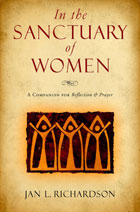

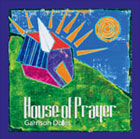

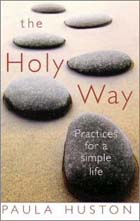
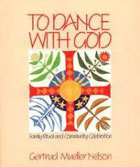



March 19, 2008 at 11:43 PM |
I recently had the opportunity to participate in foot washing with elementary school children. Observing a group of normally rambunctious ten year old boys, I was struck by how easily they embraced washing another’s feet, but how sheepish and embarrassed they were when having their own feet washed. I think that self-reliance is so engrained in our culture that we have difficulty really allowing others to serve us in intimate ways.
March 20, 2008 at 12:01 AM |
I concur with Barbie re “difficulty really allowing others to erve us in intimate ways.” Have participated in maybe 12 feet washing events over many, many years – I always yearned to see the priests wash each other’s feet or allow their own to be washing. I never witnessed any of them doing that.
The first fw I observed, I squirmed and thought, “how silly, no matter what Jesus said.” I sat that one out. The next one feeling very vulnerable I found the ceremony to be one of the most moving experiences encountered in community worship. I’ve never passed up the opportunity again and have persuaded many to at least give it one try. Each person felt as I did, a very worthwhile and intimate moment in God’s Holy Presence.
March 20, 2008 at 12:08 PM |
A few years ago in the ministry I do with students I invited them to consider doing Holy Week services. This generation of students were intrigued by the idea and decided to put much of themselves into the service. Looking for guidance for the variety of worship services I shared with them the options that I knew about. They decided that we were to do a Maundy Thursday Service that would be followed by a Service of Tenebrae. When I asked if they wanted to have a footwashing service the room got very quiet and as they squirmed I let them know it was only a question. They declined that year. What started in that year was a concentrated focus on Holy week and that first Service that was ripe with music and fellowship that turned starkly to the service of Tenebrae it was indeliable for those that participated.
The nature of campus ministry is that the students come and go on a regular basis and so in time a generation of students arrived that reluctantly agreed to a foot washing, but added a couple of caveats that satisfied them. One caveat was to let people know that they could not participate in the footwashing at all. I chuckled and said of course, did they think we were going to be hawg tying folks and washing their feet against their will? The second was driven more out of a foot phobia, this student was afraid of feet, but very much wanted to participate in the service. So a compromise was offered that we could wash one another’s hands. So that year we began having a foot/hand washing service on Maundy Thursday.
We have kept those services in tact for a number of years now however this present generation, while they agree to the service, are not so supportive or participatory. So tonight we will offer a Foot/Hand washing service but I’m not sure how many, if any will participate.
I’m not sure if the issue is about power or if it is about fear? About contempt for someone’s potentially foul feet or shame over how foul your own feet may actually be? Fear over allowing people that you know, but not all that well, touch a part of you that they see all the time but not unveiled and certainly not touched.
Peace
John
March 20, 2008 at 3:47 PM |
Thank you very much for this reflection. I will draw from it and credit you as I preach tonight (yes, I’m late, but I have a really, really good excuse!)
I am struck by the proximity of lowliness – even uncleanness – in the washing of feet, and holiness – entering to the presence of Christ – in the meal. The line is not only blurred, but removed, it seems to me. It brings to mind the curtain torn in two that holiness and lowliness might accomplish redemption.
March 22, 2008 at 1:32 PM |
Tess sent me here to read this, after reading my own foot washing entry. I’ve always wondered how it is that the Adventists include the practice in their communion service, while most of the rest of Christendom considers it arbitrary.
Your comment about personal habits that insulate us from God is an enlightening one. Thanks. Your whole blog is beautiful!
April 10, 2009 at 11:00 PM |
How interesting that as I googled Jan Richardson looking for a book about teaching reading comprehension, I was found by a blog about Holy Thursday. I have been ignoring Holy Week this year as we flounder following the retirement of our minister of 30 years. I have been hanging back and coasting along. I guess this find is God’s nudge to get back into the stream of time and thinking. Thank you for the push and the discussion. I have participated in several foot washings. Our tradition is that people involved with a sponsor for reaffirmation start the ceremony and then others from the congregation are welcomed. It is a truly humbling experience and I do love to see the image of hands serving and cleansing another person’s feet. A very intimate and respectful act to keep in our thinking.
April 9, 2020 at 4:37 PM |
In my church community we have washing of the feet every Holy Thursday.
12 members are invited in advance to participate each year. They come forward before the community, to have their feet washed by the priest. It is a sacred and humbling moment for all of us. I wonder if Jesus chose to wash feet as a reminder for us to get on our feet and go where He/we are needed.